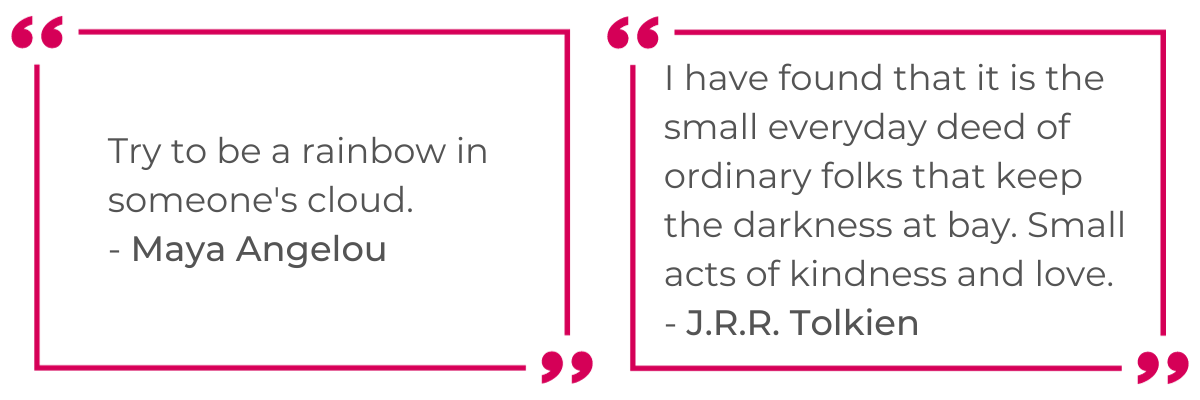Celebrating World Kindness Day
As World Kindness Day celebrates its 25th anniversary in 2023, we’re exploring the impact it has made on the world, and how organisations and individuals can carry on its important mission.
What is World Kindness Day?
World Kindness Day is celebrated each year on November 13th, and was launched in 1998 by the World Kindness Movement, a coalition of Non-Governmental Organisations (NGOs) dedicated to “inspiring individuals towards greater kindness and connecting nations to create a kinder world.”
The movement was created following a conference in Tokyo in 1997, where Japan brought together different organisations from across the world dedicated to spreading kindness. Since then, the movement has grown, and more than 30 countries now take part in World Kindness Day each year.
Why is World Kindness Day important?
The World Kindness Movement describes the purpose of World Kindness Day as being an opportunity “to highlight good deeds in the community, focusing on the positive power and the common thread of kindness which binds us.”
While being kind and considerate is a trait we should aspire to put into effect year-round, recognising the international day provides a common goal to work towards, as individuals, organisations, and countries.
Let’s look at some famous quotes about the importance of kindness:
The impact of kindness on understanding and embracing neurodiversity
When we think of being kind, we may think of being fair, friendly, and compassionate. All of these qualities can help us to better embrace neurodiversity, and work towards creating inclusive environments where all minds belong.
At an individual level, kindness might be reaching out to a neurodivergent colleague, asking them how they are doing, and actively listening to their response. It might be providing positive feedback on their contribution and making clear that you value them just as they are, rather than expecting them to mask their neurodivergent traits to ‘fit in’ with their colleagues.
At an organisational level, this might be through looking for ways to empower neurodivergent individuals with training solutions, developing your understanding of common neurodifferences such as dyslexia, DCD/dyspraxia or ADHD, or carrying out an organisational assessment to identify how Neurodiversity Smart your organisation is and determine areas that can be improved.
When you take actions to support neurodiversity in the workplace, and implement neuro-inclusive practices, not only do they have a positive impact on neurodivergent individuals, but most of the time these practices will also benefit all employees within your organisation. Inclusive and welcoming workplace cultures help to boost morale, and research finds that teams with neurodivergent individuals can be up to 30% more productive than those without, largely down to the unique skills and talents these professionals possess. This means that as well as being the right thing to do from a moral perspective, neuro-inclusion is also the smart thing to do.
Lexxic, experts in empowering neurodiversity in the workplace, can support you wherever you’re at on your journey to neuro-inclusivity.
A great place to start is by helping your employees increase their awareness and understanding of neurodiversity in the workplace, via an introductory Neurodiversity Webinar. These one-hour sessions have no maximum capacity, so are an ideal solution if you want to reach large numbers of employees at the same time.
Click the button below to view some of our most popular Neurodiversity Webinars and find out more!
This blog was written by…



